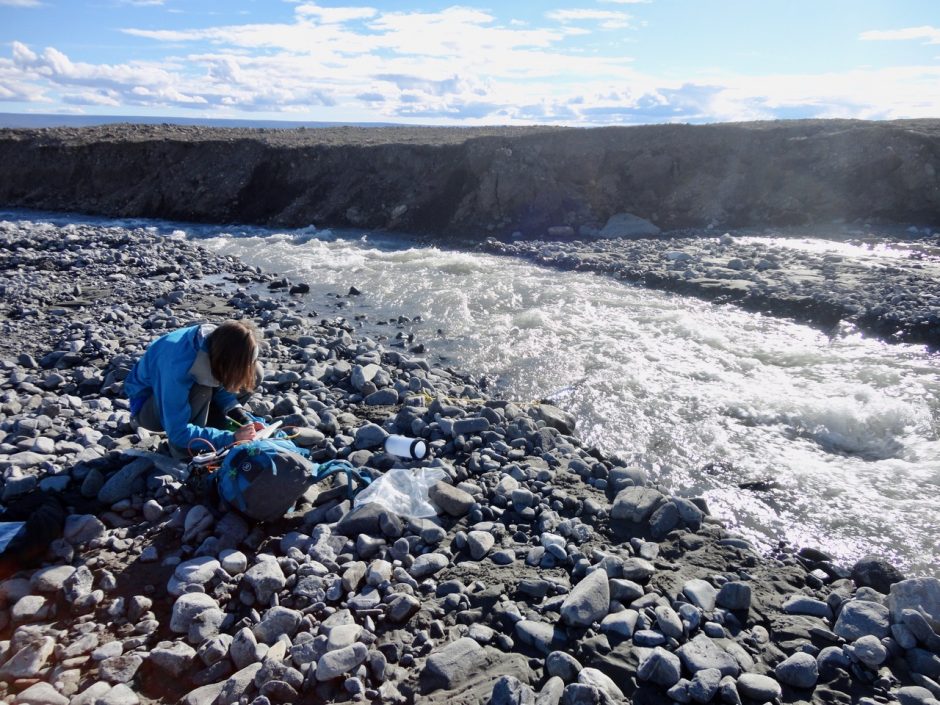
Kyra St. Pierre
The fellowship, which provides $70,000 for two years of funding, is granted based on the applicant’s research excellence, the quality of their proposed research, and the match between the applicant and the strategic priorities of their academic institute.
”When you’re a postdoctoral fellow, you’re in a bit of a transitional period of your career. You’re not a grad student anymore, but you’re also not a professor — so much of that period is filled with uncertainty,” St. Pierre said. ”One of the best things about the fellowship is that it provides more time to stay at the IOF and continue to work on projects that I’m really excited about. Having that two years allows me to actually focus on research.”
St. Pierre is an aquatic biogeochemist whose work examines the interplay between different carbon, nutrient, and pollutant cycles across terrestrial and marine ecosystems.
She completed her PhD at the University of Alberta, where she undertook a project that explored the impacts of climate change on water quality across an entire watershed in Ellesmere Island, Nunavut.

St. Pierre undertakes research on Ellesmere Island ©Jessica Serbu
St. Pierre’s current project aims to understand how much freshwater ecosystems contribute to coastal food webs. She is developing a statistical model that will determine the relative contributions of freshwaters, phytoplankton, and aquatic plants like seagrasses, and kelp, to the base of coastal food webs.
“Terrestrial ecologists work from the land to the ocean, and oceanographers work from the coastline out, but in coastal waters both land and marine forces are at play,” St. Pierre said. “Especially in the winter here in B.C., we see a large influence of those watershed materials, which could have important implications for how those ecosystems actually function in those environments.”
St. Pierre’s work has led her across Canada and the Arctic, from the high Arctic, the Prairies, and to the West Coast, and has allowed her to collaborate with researchers across disciplines to author and co-author numerous journal articles.
”I’ve been really fortunate to be part of really great teams and teams that have come from all different areas of science,” she said. “Consequently, the contributions we’ve been able to make have been impactful because we’ve been able to draw on all that expertise.”
Tags: Arctic, Awards, Climate change, Freshwater, IOF postdoctoral fellows, Marine ecosystems, Pelagic Ecosystems Lab, pollution, Research